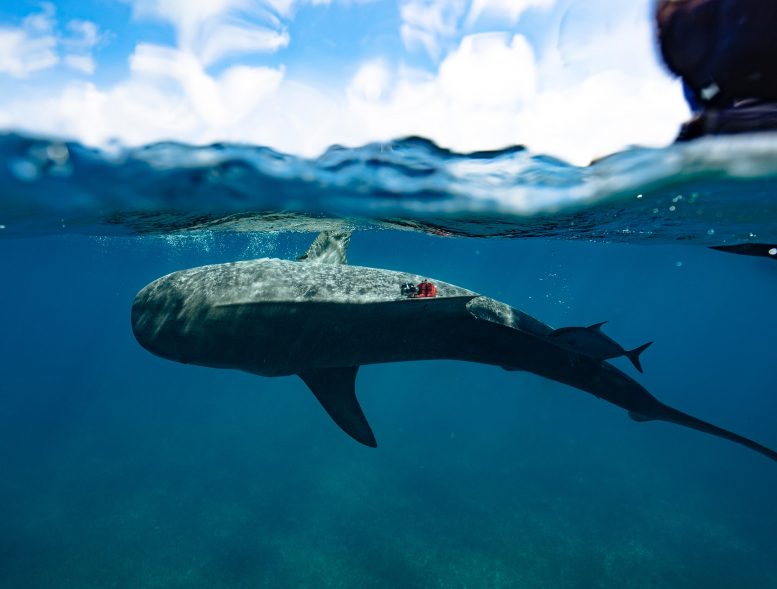
New research from marine biologists offers answers to a fundamental puzzle that had until now remained unsolved: why are some fish warm-blooded when most are not?
It turns out that while (warm-blooded) fish able to regulate their own body temperatures can swim faster, they do not live in waters spanning a broader range of temperatures.
The research therefore provides some of the first direct evidence as to the evolutionary advantage of being warm-blooded as well as underlining that species in this demographic — such as the infamous white shark and the speedy bluefin tuna — are likely just as vulnerable to changing global ocean temperatures as their cold-blooded relatives.
Lucy Harding, PhD Candidate in Trinity College Dublin’s School of Natural Sciences, is the first author of the associated research article, which has just been published in the journal, Functional Ecology. She said:
“Scientists have long known that not all fish are cold-blooded. Some have evolved the ability to warm parts of their bodies so that they can stay warmer than the water around them, but it has remained unclear what advantages this ability provided.
“Some believed being warm-blooded allowed them to swim faster, as warmer muscles tend to be more powerful, while others believed it allowed them to live in a broader range of temperatures and therefore be more resilient to the effects of ocean warming as a result of climate change.”

Lucy and her international team of collaborators assessed these two possibilities by collecting data from wild sharks and bony fish, as well as using existing databases.
By attaching biologging devices to the fins of the animals they caught, they were able to collect information such as water temperatures encountered by the fish in their habitats; the speeds at which the fish swam for most of the day; and the depths of water the fish swam in.
The results showed that warm-blooded fishes swim approximately 1.6 times faster than their cold-blooded relatives, but they did not live in broader temperature ranges.
Nick Payne, Assistant Professor in Zoology in Trinity’s School of Natural Sciences, said:
“The faster swimming speeds of the warm-blooded fishes likely gives them competitive advantages when it comes to things like predation and migration. With predation in mind, the hunting abilities of the white shark and bluefin tuna help paint a picture of why this ability might offer a competitive advantage.
“Additionally, and contrary to some previous studies and opinions, our work shows these animals do not live in broader temperature ranges, which implies that they may be equally at risk from the negative impacts of ocean warming. Findings like these — while interesting on their own — are very important as they can aid future conservation efforts for these threatened animals.”
Reference: “Endothermy makes fishes faster but does not expand their thermal niche” by Lucy Harding, Andrew Jackson, Adam Barnett, Ian Donohue, Lewis Halsey, Charles Huveneers, Carl Meyer, Yannis Papastamatiou, Jayson M. Semmens, Erin Spencer, Yuuki Watanabe and Nicholas Payne, 30 June 2021, Functional Ecology.
DOI: 10.1111/1365-2435.13869
The research was supported by Science Foundation Ireland.